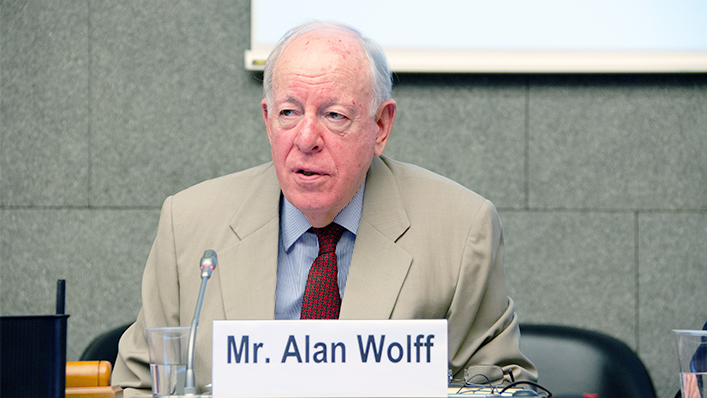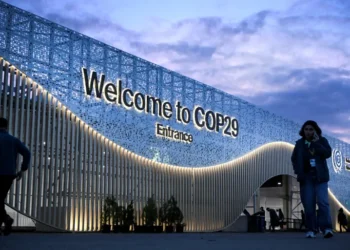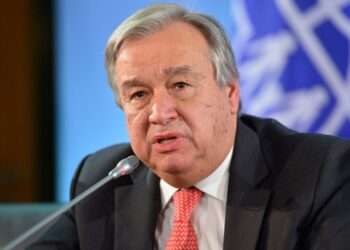Deputy Director-General (DDG), Alan Wolff urged WTO member delegations to build on their warm welcome for incoming Director-General Ngozi Okonjo-Iweala by working with her to deliver much-needed reforms to the WTO.
DDG Wolff was speaking on behalf of all four Deputy Directors-General as part of the interim leadership arrangements the WTO has had in place since September 2020. He also used his remarks to look back at how members and the Secretariat had continued work across the full spectrum of WTO issues during six months in which in-person meetings for the most part could not be held.
“Enthusiasm, optimism, and hope need to be translated into concrete action to enhance global trade’s contribution to a more effective pandemic response as well as a strong and sustainable economic recovery. Delivering negotiated agreements would be essential to repair the WTO’s reputation”.
He noted that the landmark event of the WTO in the last six months was the appointment of the new Director-General ten days ago after what turned out to be a lengthy process. He revealed that 91 member delegations spoke last week to congratulate the new Director-General.
DDG Wolff noted that Dr. Ngozi’s remarks at the Special General Council meeting called for the need “to act with a sense of urgency to assist in controlling the COVID-19 pandemic through the nexus of trade and public health and by broadening access to new vaccines, therapeutics, and diagnostics by facilitating technology transfer within the framework of multilateral rules”.
He indicated that WTO members can contribute to achieving the broad term goals of the new Director-General by playing a more forceful role in exercising the WTO’s monitoring function. Part of this, according to him, would involve encouraging members to minimize or remove export restrictions that hinder supply chains for medical goods and equipment.
DDG Wolff revealed that recent WTO monitoring suggests that as of 24th February 2021, 59 members and 7 observers still had pandemic-related export restrictions or licensing requirements in place, mostly for personal protective equipment, disinfectants, and to a lesser extent, for medicines and food.
This, he noted, “represents a significant level of rollback compared to the 81 members and 10 observers that had implemented such measures over the past year. A welcome development – but there is much room to improve this record”.
He further stated that beyond these immediate responses to the pandemic, Dr. Ngozi set out several other vitally important challenges: To swiftly conclude the fisheries subsidies negotiations, and thus pass a key test of the WTO’s multilateral credibility while contributing to the sustainability of the world’s oceans; To build on the new energy in the multilateral trading system from the joint statement initiatives attracting greater support and interest, including from developing countries; To address more broadly the nexus between trade and climate change, using trade to create a green and circular economy, to reactivate and broaden negotiations on environmental goods and services, to take the initiative to address the issue of carbon border adjustments as they may affect trade.
The rest of the targets include; To level the playing field in agricultural trade through improving market access and dealing with trade-distorting domestic support, exempting from export restrictions World Food Program humanitarian purchases; To strengthen disciplines on industrial subsidies, including support for state-owned enterprises; To defuse the divisions over Special and Differential Treatment (SDT); and to develop a work program for restoring two-tier dispute resolution, to be agreed no later than MC12.
READ ALSO: WTO gets first female, first African Director-General





















